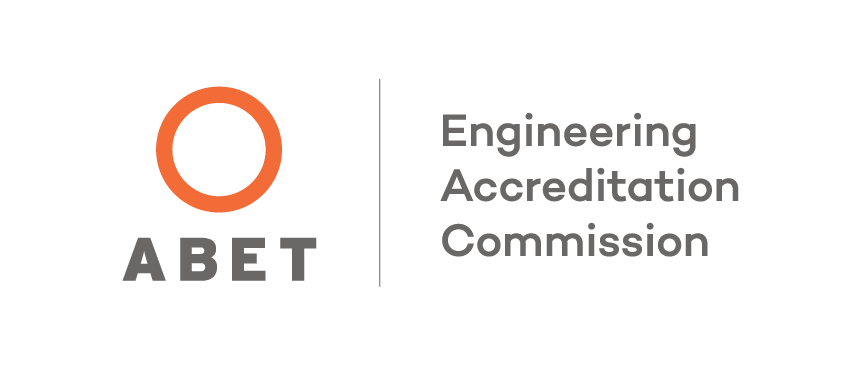Quick Degree Info
Degree Contact:
Mary Bell Goodson (Advisor)
Flowchart: Fall 2026, Fall 2025, Fall 2024, Fall 2023
(Click above to view pdf flowcharts or contact Engineering Advising for assistance.)
UA Catalog Listing
Degree Works
 The Bachelor of Science in Computer Engineering program at the University of Alabama is accredited by the Engineering Accreditation Commission of ABET, under the commission’s General Criteria and Program Criteria for Electrical, Computer, Communications, Telecommunication(s) and similarly named Engineering Programs.
The Bachelor of Science in Computer Engineering program at the University of Alabama is accredited by the Engineering Accreditation Commission of ABET, under the commission’s General Criteria and Program Criteria for Electrical, Computer, Communications, Telecommunication(s) and similarly named Engineering Programs.
UA’s computer engineering program gives students a broad knowledge of the software and hardware components of modern computing systems, detailed computer-systems design, and the role of computer systems in various engineering disciplines.
Students are prepared for a computer-oriented engineering career with emphasis on design and applications of embedded computing systems. The computer engineering option includes a broad spectrum of electrical engineering and computer science courses, as well as electives allowing a specific study area in depth and gaining significant design experience. Topical coverage includes microcontroller-based systems, real-time systems, hardware/software co-design, rapid prototyping, computer-aided design, hardware-software integration, system-on-a-chip design, and system-level issues in embedded systems design.
All Flowcharts: Fall 2026, Fall 2025, Fall 2024, Fall 2023, Fall 2022, Fall 2021, Fall 2020
Program Educational Objectives
The Program Educational Objectives for the B.S. in Computer Engineering are:
- Graduates will excel in engineering careers and/or postgraduate education utilizing knowledge of Computer Engineering disciplines and underlying fundamental principles of science and mathematics, engineering analysis, problem solving, and design;
- Graduates will expand their knowledge of current and emerging issues in Computer Engineering and continue career-long professional development through engagement in lifelong learning;
- Graduates will grow professionally and advance throughout their engineering careers utilizing skills in effective communication; responsible, multidisciplinary teamwork, and adherence to principles of professional accountability and ethics.
Student Outcomes
Graduates of the Computer Engineering program will have:
- An ability to identify, formulate, and solve complex engineering problems by applying principles of engineering, science, and mathematics;
- An ability to apply engineering design to produce solutions that meet specific needs with consideration of public health, safety, and welfare, as well as global, cultural, social, environmental, and economic factors;
- An Ability to communicate effectively with a range of audiences;
- An ability to recognize ethical and professional responsibilities in engineering situations and make informed judgments, which must consider the impact of engineering solutions in global, economic, environmental, and societal contexts;
- An ability to function effectively on a team whose members together provide leadership, create a collaborative and inclusive environment, establish goals, plan tasks, and meet objectives;
- An ability to develop and conduct appropriate experimentation, analyze and interpret data, and use engineering judgment to draw conclusions;
- An ability to acquire and apply new knowledge as needed, using appropriate learning strategies;
- An ability to solve mathematics problems in probability, statistics, differential equations, linear algebra, complex variables, and discrete mathematics as they relate to problems in Computer Engineering.
 The Bachelor of Science in Computer Engineering program at the University of Alabama is accredited by the Engineering Accreditation Commission of ABET, under the commission’s General Criteria and Program Criteria for Electrical, Computer, Communications, Telecommunication(s) and similarly named Engineering Programs.
The Bachelor of Science in Computer Engineering program at the University of Alabama is accredited by the Engineering Accreditation Commission of ABET, under the commission’s General Criteria and Program Criteria for Electrical, Computer, Communications, Telecommunication(s) and similarly named Engineering Programs.